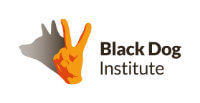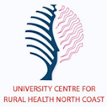While floods are currently ravaging the east coast of Australia, many Australians are grappling first-hand with the impact of more severe weather patterns caused by climate change. eMHPrac has compiled a list of resources on preventing and managing mental health issues after a natural disaster such as a bushfire, earthquake, extreme storm, cyclone, drought or flood.
The natural world can be unpredictable. A natural disaster or extreme weather event can result in a sense of fear and uncertainty about immediate safety and threaten the sense of predictability to life. Difficulties adjusting to the aftermath of a natural disaster can be experienced long-term, even once the immediate danger has passed. Individuals who have faced a natural disaster might be coping with widespread feelings of loss – loss of housing, possessions, employment, study, the environment and even loss of life. This can further threaten our sense of predictability, security or stability.
Digital interventions offer affordable and accessible mental health information, tools and treatments. The digital mental health resources below can assist you to find ways to take care of your mental health, learn healthy ways to cope, understand when to seek further mental health assistance, or provide advice on how to support children and young people through a natural disaster.

APS
Psychological First Aid: A guide to supporting people affected by disaster
The Australian Psychological Society (APS) is a national organisation promoting and celebrating psychology in Australia. Their website includes a range of resources for health professionals and consumers seeking information or guidance around mental health issues. These resources include a downloadable Psychological First Aid guide for people affected by disaster. It includes information about understanding psychological first aid, how to use it in the field, adapting it for culture, children, young people or people with health conditions or physical or mental disabilities, and self-care while working in the field.
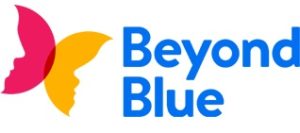
Beyond Blue
Natural disasters and your mental health
https://www.beyondblue.org.au/the-facts/natural-disasters-and-your-mental-health
Beyond Blue is a mental health organisation, providing information and support for anxiety, depression, suicide prevention, supporting someone, parenting, grief and loss, substance use and staying well. Their website provides information on looking after mental health after a natural disaster like a bushfire, flood, cyclone or earthquake, including common reactions, symptoms beyond a common reaction, dealing with the emotional impacts, and supporting someone else following a natural disaster.
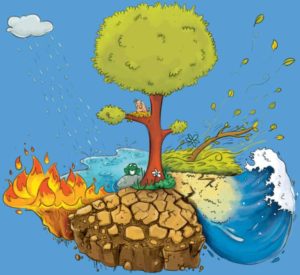
Birdie’s Tree (Children’s Health QLD)
https://www.childrens.health.qld.gov.au/natural-disaster-recovery/
Birdie’s Tree is a suite of resources developed by Children’s Health Queensland Hospital and Health Service to help families prepare for, cope with and recover from natural disasters like storms, cyclones, floods or fire. The website includes therapeutic games, information, resources, storybooks, and early childhood curriculum to help parents, carers, and young children through scary experiences.
Black Dog Institute
Bushfire Support Service
https://www.blackdoginstitute.org.au/bush-fire-support-service/
The Black Dog Institute Bushfire Support Service is a free mental health support service for Emergency Service Workers and their loved ones including; fire fighters, state emergency services, forest fire management, animal rescue, marine rescue, police, paramedics, and other emergency service workers. It offers a quick mental health check, providing insights into how users are feeling and recommendations for a range of free support options based on results. The website also includes information on coping with the stress of bushfires, understanding symptoms and how to access evidence-based support.

Emerging Minds
Community trauma toolkit
https://emergingminds.com.au/resources/toolkits/community-trauma-toolkit/
Emerging Minds is an Australian organisation dedicated to advancing mental health and the emotional wellbeing of Australian infants, children, adolescents and their families. They have developed a range of mental health policies, services, interventions, programs and resources available through their website. One of these resources is a Community Trauma Toolkit, helping communities, families, and individuals understand the impacts of a traumatic event and how to lessen them. The toolkit includes resources to support adults and children, providing a starting point to help children navigate the many stages of a disaster or traumatic event.

headspace
How to cope with the stress of natural disasters
https://headspace.org.au/explore-topics/for-young-people/natural-disasters/
headspace is the National Youth Mental Health Foundation, providing information, guidance and support for young people who need help with mental health, physical health, alcohol and other drugs or work and study support. Their website provides information for young people affected by a natural disaster, including tips for the initial days and weeks after a natural disaster, tips for the shorter and longer term after a natural disaster, common reactions, other challenges and where to access further support.

ifarmwell
ifarmwell is a free online toolkit designed to help farmers cope effectively with life’s challenges and get the most out of every day. Based on Acceptance and Commitment Therapy (ACT) and developed in collaboration with Australian farmers, ifarmwell is a self-help intervention equipping farmers with new tools that reduce the negative impact that stressful situations have on their lives.

Kids Helpline
Teens 13-17: Coping with natural disasters
https://kidshelpline.com.au/teens/issues/coping-natural-disasters
Young Adults 18-25: Coping with natural disasters
https://kidshelpline.com.au/young-adults/issues/coping-natural-disasters
Kids Helpline is a free, confidential 24hr counselling service for young people aged 5-25 years, offering support by phone, email and over the web. The website connects kids, teens, young adults and parents with information, guidance and support on a range of issues relating to mental health and wellbeing including coping with natural disasters. They provide information on the impacts people commonly experience when going through a natural disaster event, how to prepare, strategies to deal with natural disasters, tips to help recover and get back on track, and where to access further support.

Lifeline
Recovering after natural disaster
https://www.lifeline.org.au/get-help/information-and-support/natural-disaster/
Lifeline is a national charity providing information, crisis support, and suicide prevention services to Australians experiencing a personal crisis. Their website includes information on a range of mental health and wellbeing topics including recovery after a natural disaster. They provide information and tips on the possible impact of natural disasters, ways to cope, helping children and available support.
Coping with loss and change in a community after a bushfire
Lifeline has also developed a range of factsheets, toolkits, and other resources that are available to download through their website. They have developed a toolkit for coping with loss and change in a community after a bushfire providing information to help people understand common emotions during loss and change, reactions to stress, and help develop some strategies to help cope with traumatic events. The toolkit also includes links to additional support services and useful online resources.
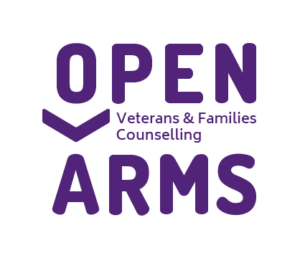
Open Arms
Resilience and recovery from natural disaster
https://www.openarms.gov.au/about/news/2021/resilience-and-recovery-natural-disaster
Open Arms is Australia’s leading provider of high quality mental health assessment, clinical counselling and support for Australian veterans and their families. Their website provides information on a range of topics relating to veterans, living well, and mental health. The website includes information on resilience and recovery from natural disasters such as floods and bushfires. They provide information and strategies to help people cope following a natural disaster including; ways to stay connected, maintaining your health, building in time for activities you enjoy, balancing media exposure, maintain or re-establish routines, practice kindness and support others, dealing with triggering events and practice relaxation.
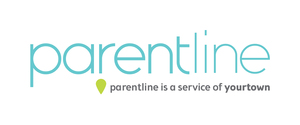
ParentLine
Coping With A Crisis Or Disaster
https://parentline.com.au/issues/coping-crisis-or-disaster
Parentline is a telephone and online service providing counselling and support to parents and carers of children across Australia. In addition to their counselling services the Parentline website includes information on a number of topics relating to kids and parenting including coping with a crisis or disaster. The website explores how a disaster or trauma can affect families including normal behavioural responses, ways parents or carers can support their child, and ways to access support.
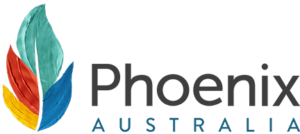
Phoenix Australia Centre for Posttraumatic Mental Health
https://www.phoenixaustralia.org/
Phoenix Australia is a not-for-profit organisation that promotes recovery and aims to improve the wellbeing of Australians affected by trauma. Their website provides a range of information, factsheets and other self-help resources for those affected by trauma or wanting to assist others who have been affected by trauma, including natural disasters.
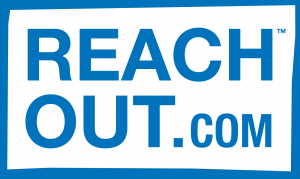
ReachOut
How to deal with the stress of bushfires, floods, earthquakes and cyclones
ReachOut is an online mental health service for young Australians, providing support and information, peer-support and referral tools. The website provides information on a range of topics relating to youth mental health and wellbeing, including coping with the stress of bushfires, floods, earthquakes and cyclones. They provide tips on what to do for the initial days and weeks after a natural disaster, things you can do to feel better, how to get help, and tips for the longer term after a natural disaster.
Digital Drought Care Package
https://au.reachout.com/collections/dealing-with-stress-from-the-drought
ReachOut has also developed a Digital Drought Care Package, for young people stressed about or coping with drought. The package includes articles, tips, personal stories, videos, links to support and more. The package aims to help people cope with a drought and stay hopeful.

Trauma and Grief Network
Disasters
https://tgn.anu.edu.au/resource/disasters/
The Trauma and Grief Network is a virtual space for people to browse online resources for child and adolescent trauma, loss, and grief. Their website offers resources to help caregivers understand and respond to the need of children and adolescents experiencing trauma, loss and grief. They have developed a series of resources to help families cope in the event of a disaster, including tip sheets, videos, and inks to other support resources.

Be You
Impact of natural disasters on mental health
Be You is an education initiative developed by Beyond Blue, Early Childhood Australia, and headspace, supporting educators to develop positive, inclusive, and resilient learning communities. The website provides information on a range of topics including the impact of natural disasters on mental health, outlining coping strategies, self-care following a natural disaster, signs of distress to look for in children and young people, and being prepared for a natural disaster.

ReachOut Parents
Helping your teen deal with the stress of a natural disaster
The ReachOut Parent’s website provides information, tools, and resources to help parents and carers supporting young people aged 12 to 18. The website provides information on a range of topics, including helping your teen deal with the stress of a natural disaster. They provide tips on supporting teens during the initial response to a natural disaster, during the recovery phase, and where to get extra support.
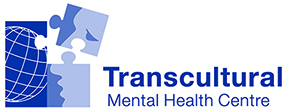
Transcultural Mental Health Centre
Coping Personally With War, Tsunamis and Disaster
The Transcultural Mental Health Centre is a New South Wales service, working with people from diverse cultural and linguistic communities and health professionals, to support good mental health. Their website includes factsheets on coping personally with disasters and helping your family in Arabic, English, Hindi, Indonesian, Japanese, Korean, Russian, Simplified Chinese, Tamil, Thai, and Traditional Chinese.

Way Ahead
Mental Health After Natural Disasters and Emergencies
https://wayahead.org.au/get-the-facts/mental-health-after-natural-disasters-and-emergencies/
Way Ahead – Mental Health Association NSW provides trustworthy mental health information for individuals, families, and friends. The website includes information on a range of mental health topics including mental health after natural disasters and emergencies. They explore common reactions to natural disasters, when to seek help, strategies to cope and help others cope following a natural disaster, and where to seek help.



